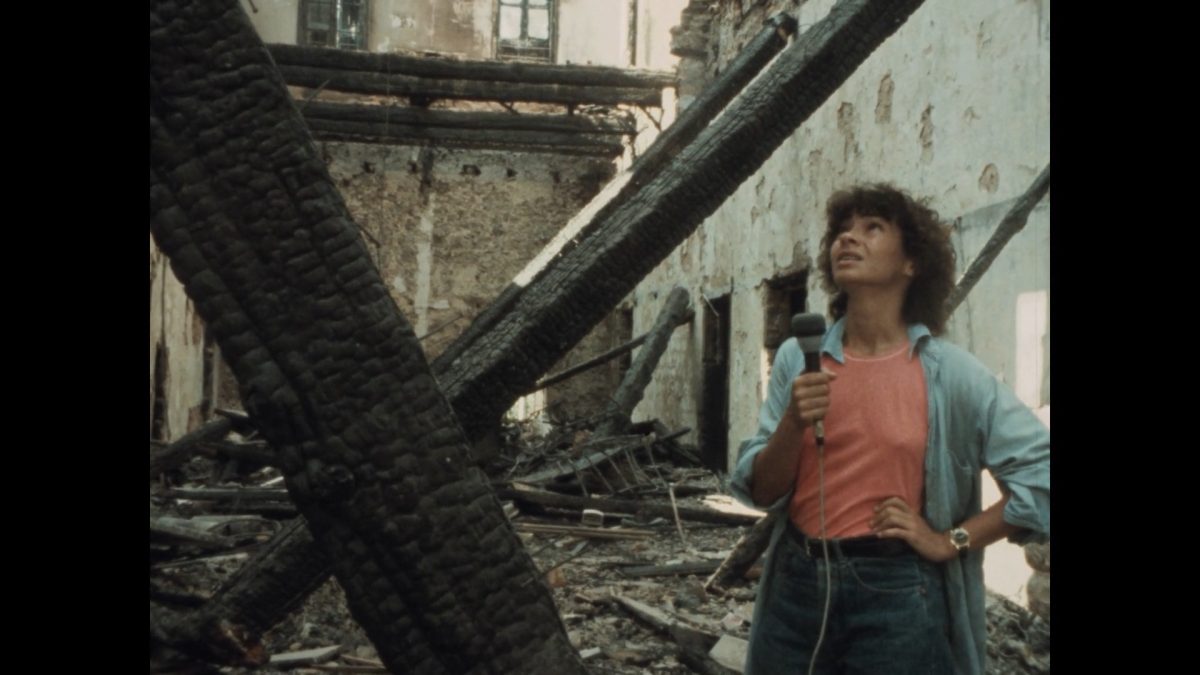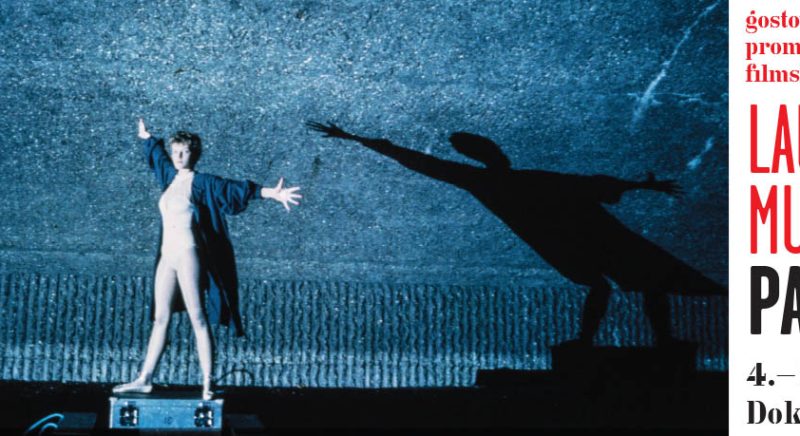
Beirut, Never Again documentary, 1976, color, Lebanon, 16/35 mm, 35 min.
1976 marks the beginning of Beirut’s calvary. With a child’s eyes the filmmaker follows for six months the daily destruction of the city’s walls. Every morning, between 6 and 10am she roams around Beirut while the militia from both sides rest from their night of fighting.
Beirut, My City documentary, 1982, color, Lebanon, 16 mm, 37 min.
In July 1982 the Israeli army laid siege to Beirut. Four years earlier Jocelyne Saab saw her 150-year-old childhood home go up in flames. She asked herself: when did all this begin? Every place becomes a historical site and every name a memory.
The informational films that I made for television, and therefore in order for them to be seen by the greatest number of people possible, led me, little by little, to prefer people’s sensibilities to their words: to watch them living, watch them doing. I thought that like that, the film would be more powerful, and I was right: the last film that I made on my own, without an operator, during the siege of Beirut, under the bombs, was like a personal experience.
I didn’t know what I was going to do for this film, I carried my camera around like a snapshot camera for two months. I wanted to show the challenge the inhabitants faced under siege, encircled. I only showed solidarity, this euphoria of a utopia where everyone looks after the essential things: water, bread, electricity, and where people really look each other in the eyes.
In this film, there are situations, regards, gestures, and very few words: one minute where a man speaks, but no interview. The will to survive, this challenge in face of violence that has been imposed upon us, the refusal to leave, certainly create something very powerful that I wanted to show.
The Ship of Exile documentary, 1982, color, Lebanon, 16 mm, 12 min.
After living clandestinely in Beirut to escape the Israeli forces, the head of the PLO, Yasser Arafat, leaves Lebanon aboard the Atlantis for a new exile in Greece and then Tunis. He talks about his destiny and the future of the PLO.
*After the screening there will be a lecture and conversation with the Jocelyne Saab: Untamed Memory curator Mathilde Rouxel moderated by Subversive Festival’s artistic director Dina Pokrajac.
Mathilde Rouxel, PhD in film studies from the New Sorbonne University, wrote her thesis on the figures of the people in struggle in Arab women’s cinema (1967-2020). She has published Jocelyne Saab, la mémoire indomptée (Beirut, Dar an-Nahar, 2015) and co-edited ReFocus: The Films of Jocelyne Saab (Edinburgh University Press, 2022) and Le Livre pour sortir au jour de Jocelyne Saab (Marseille, éditions commune, 2023). Associate researcher at IREMAM-CNRS (Aix-Marseille University), she is artistic director of the Aflam (Marseille) and Noisy-le-Sec Franco-Arab Film Festivals. She co-founded and direct the Association Jocelyne Saab to preserve the work of the Lebanese filmmaker.
Jocelyne Saab (1948. – 2019.) bila je francusko-libanonska redateljica i umjetnica. Kao ratna reporterka, redateljica dokumentaraca i fikcije te videoumjetnica, razvila je vlastiti jezik i izražajna sredstva kojima osuđuje nepravdu i bori se za bolje društvo. Poznata je po svojoj podršci narodu Palestine i dokumentarnom radu za vrijeme Libanonskoga građanskog rata (1975. – 1990.), ali i po svojem filmu Dunia, snimljenom u Egiptu, koji se tematski suprotstavlja usponu fundamentalizma u toj zemlji. Njezini filmovi odražavaju velike društvene i antikolonijalne borbe dvadesetoga stoljeća: Front Polisario u Zapadnoj Sahari, Iran nakon Iranske revolucije 1979., Egipat za vrijeme prosvjeda za kruh 1977. i uspona fundamentalizma u osamdesetima. Saigonska dama portret je žene koja se prisjeća maquis – pokreta otpora i borbe vijetnamskih komunista protiv Amerikanaca.

















